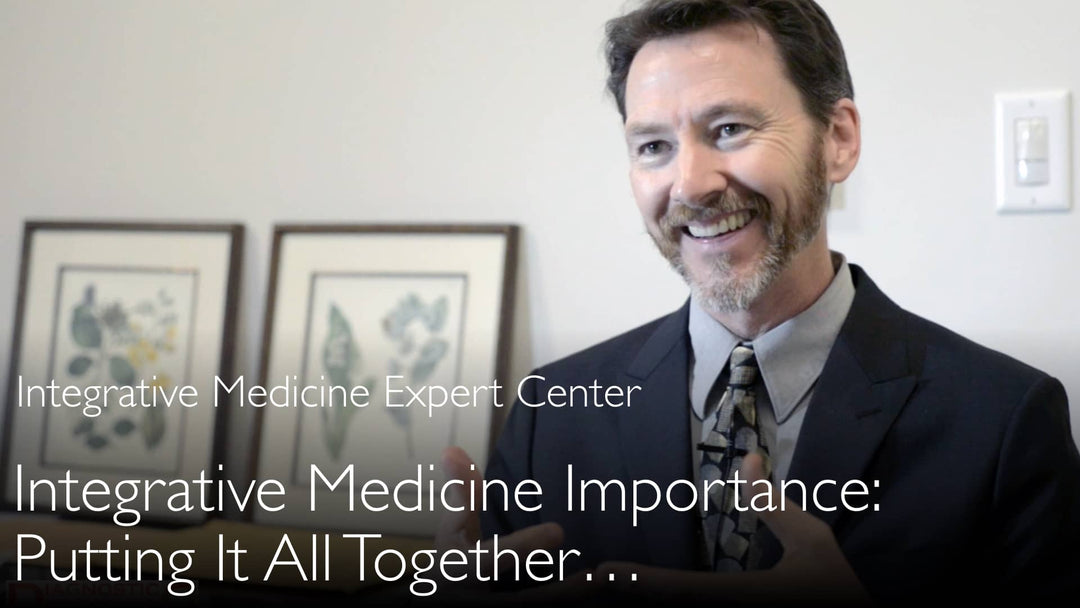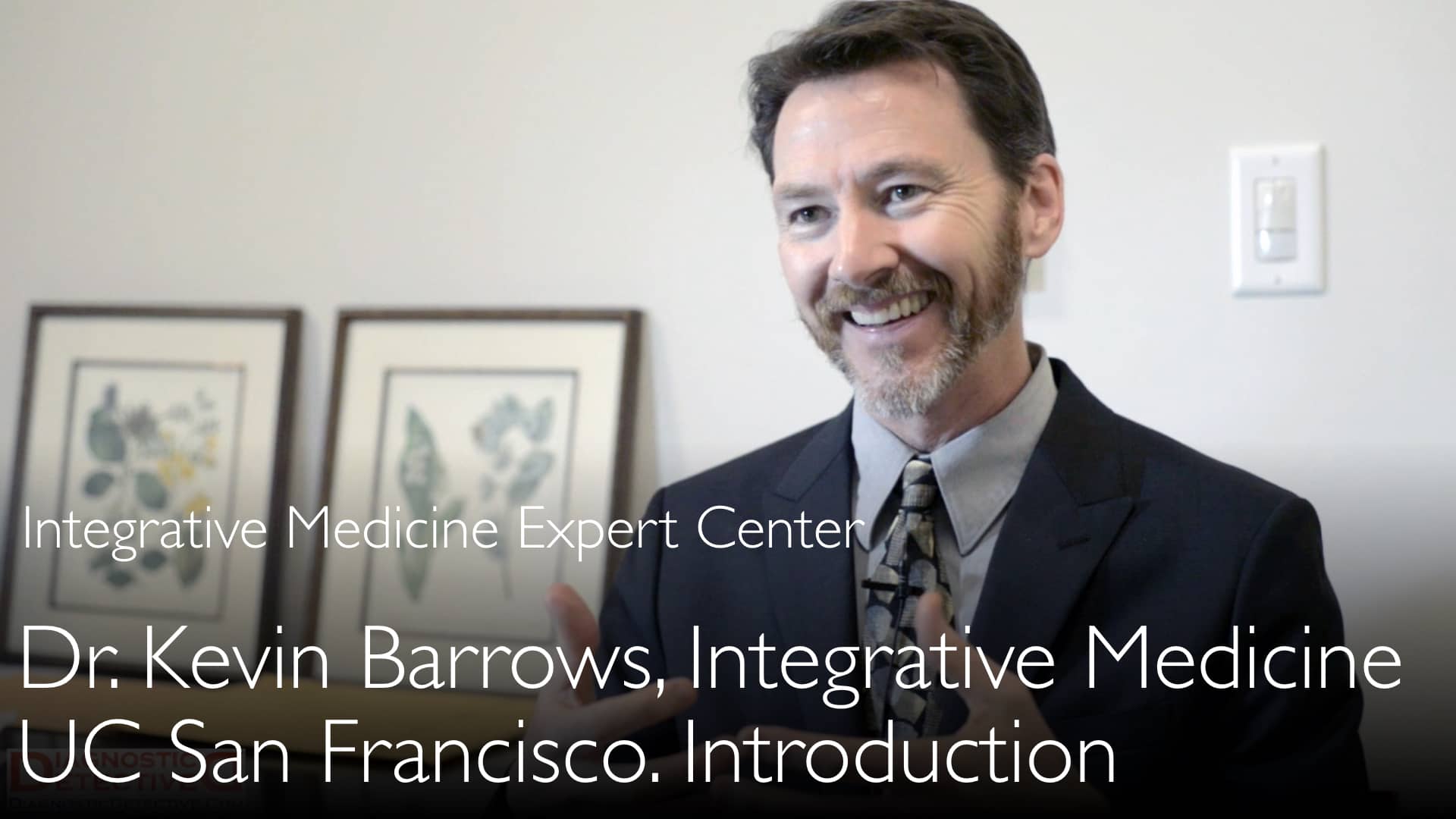統合医療の第一人者であるケビン・バローズ医学博士は、従来の治療法と代替療法を組み合わせることで、薬剤投与量の削減や副作用の最小化が可能となり、現代の患者ケアに古代の知恵を活かした包括的なアプローチが実現すると述べています。博士は、鍼治療や音楽療法によって術後のオピオイド使用量が減少し、合併症の抑制や医療費削減につながったというエビデンスに基づく事例を特に強調しています。
統合医療:ホリスティックアプローチで患者の治療成果を向上
セクションへ移動
統合医療とは
統合医療は、従来の医療とエビデンスに基づく補完療法を戦略的に組み合わせたホリスティックな治療アプローチです。UCSFマインドフルネスプログラムディレクターのケビン・バローズ医学博士が説明するように、この方法は個々の症状ではなく人間全体を治療することに重点を置いています。統合医療は、多様な治療体系から安全で効果的な手法を取り入れることで、従来の治療を強化します。
その根底にある哲学は、古代の知恵と現代科学が患者ケアにおいて共存できるという考えです。ケビン・バローズ医学博士は、このアプローチが従来医療に取って代わるものではなく、治療成果の向上のために選択肢を広げるものであると強調しています。
従来の医療との相乗効果
統合医療は、現代医療システムのギャップを埋めることで従来の治療を補完します。アントン・チトフ医学博士との議論で、ケビン・バローズ医学博士は、これらの組み合わせたアプローチが治療効果を高める相乗効果を生み出すと指摘しました。従来医療が急性期ケアと技術的介入に優れている一方、統合医療は慢性疾患の管理と予防医療において優れた解決策を提供することが多いのです。
この組み合わせは、異なる治療アプローチが互いに補完し合う包括的な医療モデルを創出します。バローズ博士は、統合医療が従来の診療から「何も奪うものではなく」、多様な患者のニーズに対応する治療の可能性を大きく広げると述べています。
薬剤投与量と副作用の軽減
統合医療の重要な利点の一つは、有害作用を最小限に抑えながら薬物への依存を減らせることです。ケビン・バローズ医学博士は、統合的アプローチにより多くの疾患で薬物の必要量が減少するという確かなエビデンスを引用しています。患者が従来の治療と並行して補完療法を受けると、多くの場合、より少ない薬剤投与量で治療効果が得られます。
この減少は、薬剤の副作用軽減に直接つながります。バローズ博士は特に、統合的介入によりオピオイドの必要量が減り、便秘、転倒、その他のオピオイド関連合併症のリスクが低下した術後ケアの研究を挙げています。こうした結果は、治療の安全性を高める統合医療の役割を示しています。
現代医療における古代の知恵
統合医療は、歴史的な治療の知恵と現代医療実践を効果的に結びつけます。ケビン・バローズ医学博士は、検証された古代の知恵を現代の治療プロトコルに組み込むことの重要性を強調しています。これらの時間をかけて検証されたアプローチは、科学的に裏付けられれば、薬物療法を超えた治療オプションを広げる貴重な手段となります。
アントン・チトフ医学博士との対話で、バローズ博士は、効果的な伝統的実践が現代医療から排除される理由はないと問いかけました。彼はこれらのアプローチを知的に統合することを提唱し、エビデンスに基づく枠組みで適用されれば臨床成果を改善できる貴重な資源であると指摘しています。
エビデンスに基づく統合医療療法
特定の統合医療療法は、厳格な研究を通じて測定可能な臨床的利点を示しています。ケビン・バローズ医学博士は、特に十分に文献化されている2つの介入、すなわち鍼治療と音楽療法を強調しています。臨床研究は、鍼治療が病院で実施された場合、術後の疼痛とオピオイド必要量を有意に減少させることを確認しています。
同様に、治療的な音楽介入は疼痛と不安の管理に有効性を示しています。ケビン・バローズ医学博士は、これらの手法が安全性を損なうことなく従来の治療を強化する、エビデンスに基づく統合的アプローチの模範であると述べています。このような療法の統合は、現代医療環境におけるホリスティック治療原則の実践的な応用を表しています。
医療コストの削減
統合医療は、医療システム内で実質的なコスト削減の可能性を提供します。ケビン・バローズ医学博士は、薬物使用の減少が治療費を直接削減し、薬剤副作用の管理に関連するコストを最小化すると説明しています。より少ないオピオイド処方は、拮抗薬や便秘、転倒関連の傷害の治療にかかる支出の削減を意味します。
薬剤節約に加え、統合的アプローチは病院の再入院を減らし、回復時間を短縮する可能性があります。ケビン・バローズ医学博士は、これらの経済的利点が、統合医療を単に臨床的に価値があるだけでなく、現代医療モデル内で財政的に持続可能なものにすると強調しています。
統合医療の実施
成功した実施には、エビデンスに基づく実践を従来のケア環境に戦略的に組み込むことが必要です。ケビン・バローズ医学博士は、統合療法を「知的に」適用し、科学的検証が臨床判断を導くことの重要性を強調しています。医療提供者は、実証された安全性と有効性を持つ手法を優先すべきです。
アントン・チトフ医学博士と議論されたように、統合医療は従来のアプローチを損なうことなく治療オプションを拡大する、医療における前向きな進化を表しています。バローズ博士は、思慮深く統合されたホリスティック治療が、より良い患者の治療成果、強化された安全性、そしてより包括的なケアを生み出すと結論付けています—これらは最終的にすべての患者のために医学を前進させる利益です。
全文書き起こし
あらゆる疾患の治療に対する統合医療アプローチの利点。従来医療と代替医療をどう組み合わせて患者をホリスティックに治療するか?統合医療の第一人者がその利点について経験を共有します。
従来医療と統合医療を組み合わせる利点。アントン・チトフ医学博士。薬剤投与量の減少。薬剤副作用の軽減。従来医療治療における統合医療の利点。統合医療は古代の経験を現代にもたらします。統合医療のトップ専門家によるビデオインタビュー。セカンドオピニオンにより過敏性腸症候群の診断が正確かつ完全であることを確認します。セカンドオピニオンはまた、過敏性腸症候群に対する最良のホリスティック自然治療戦略の選択にも役立ちます。過敏性腸症候群についてセカンドオピニオンを求め、ご自身の治療が最良であることに自信を持ってください。統合医療の利点。
アントン・チトフ医学博士: バローズ先生、統合医療実践におけるご経験で他に共有したいことはありますか?
ケビン・バローズ医学博士: 統合医療専門医、UCSFマインドフルネスプログラムディレクター。私は統合医療が医療システムを強化すると感じているため、キャリアを統合医療の方向に向けました。統合医療は従来の現代医療を強化します。
ケビン・バローズ医学博士: なぜ本当に効果のある古代の知恵を利用しないのでしょうか?私たちは古代の知恵を統合医療の実践として現代に取り入れるべきです。
ケビン・バローズ医学博士: 何かが効果的で安全であるときに、なぜ自分を制限するのでしょうか?それをすべての人に利用可能にしたいとは思いませんか?すべての人のために最良の臨床結果を望まないでしょうか?
ケビン・バローズ医学博士: 私たちはおそらく統合医療療法を使用することで医療コストを削減できます。例えば、研究は病院での鍼治療と音楽の使用が患者のオピオイド鎮痛剤使用を減らすのに役立つことを示しました。それは外科手術後の疼痛緩和に役立ちます。
ケビン・バローズ医学博士: そしてより少ないオピオイドで患者はオピオイド関連の副作用が少なくなります。彼らは便秘が少なく、転倒も少なくなりました。
ケビン・バローズ医学博士: 統合医療は医学をより良くします。統合医療は何も奪いません。統合医療は私たちが患者のためにできることを追加し広げるだけです。
ケビン・バローズ医学博士:
だから私は、統合医療が証拠に基づいて知的に行われるとき—それが存在するとき—統合医療は医療にとって良い方向性であると考えています。
アントン・チトフ医学博士: バローズ先生、この非常に洞察に富み有用な会話をありがとうございます。経験豊富な実践者から統合医療について学ぶことは非常に役立ちます。統合医療に関する私たちの会話が多くの視聴者にとって非常に興味深いものになることを確信しています。 ケビン・バローズ医学博士: - ありがとう、チトフ先生、光栄です!




